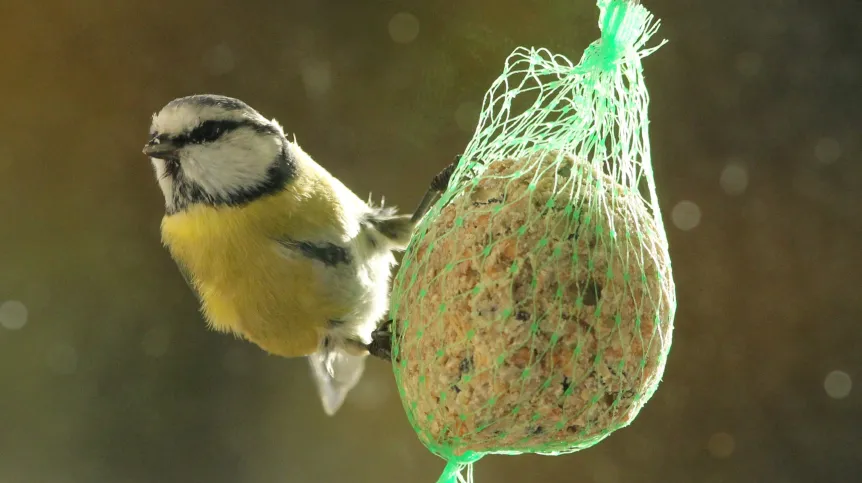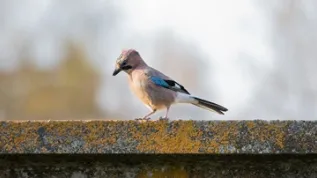
Female blue tits were more likely to have offspring with a partner other than her social mate when they experienced large fluctuations in air temperature, research by Polish scientists shows.
Dr. Aneta Arct from the Institute of Environmental Sciences at the Jagiellonian University, in collaboration with Professor Mariusz Cichoń and Dr. Szymon Drobniak from the JU Institute of Environmental Sciences and Professor Lars Gustafson from Uppsala University, studies the relationship between environmental conditions and frequency of extra-pair copulation among birds on the Swedish island of Gotland.
The hypothesis that in unfavourable circumstances, such as drought, food shortage or extreme temperatures, the females may look for genes from an extra-pair partner, which could increase their offspring’s chances of survival, was tested by synthesising the results of research papers published to date.
Based on the analysis of metadata from 240 studies on 165 bird species, the researchers have demonstrated that environmental conditions (climate conditions, geographic location, or primary production) have an impact on the probability of birds' involvement in extra-pair copulations.
'This significant part of the project provided some insight into ecological processes regulating different patterns of extra-pair partner choice,’ says the press release published on the Jagiellonian University website.
As part of the project financed by the National Science Centre, Dr Aneta Arct's team also analysed the available weather data and compared them to long-term data documenting the natural population of blue tit (Cyanistes caeruleus) nesting on the Swedish Island of Gotland.
The results of joint research were recently published in Behavioral Ecology (Temperature variability is associated with the occurrence of extrapair paternity in blue tits).
The research shows that blue tit females more often have extra-pair offspring when they experience large fluctuations of air temperature. According to the researchers, the likelihood of 'avian cheating' increased with increasing variability in ambient temperature experienced by females before laying eggs. Thus, extra-pair copulation may be a 'strategy used by blue tits to cope with rapidly changing environmental conditions.’
The press release adds: 'The research conducted as part of the project shed new life on birds’ complex reproductive strategies, which can result from their adaptation to environmental conditions.’
The results of the project can contribute to solving one of the greatest evolutionary mysteries of why females so often engage in extra-pair mating.
According to the researchers, their study 'can also shed new light on the evolution of sexual behaviour of humans and other animal species' and contribute to 'the better understanding of limitations to phenotypic plasticity, which is key to maintaining biodiversity.’
Extra-pair copulation, that is, the female's copulation with a partner other than her social mate, is a very common breeding strategy among birds. Although birds, like humans, form monogamous couples, molecular biology methods indicate that extra-pair offspring is found in over 90 percent of bird species.
'Females of Polish bird species - e.g. tits, flycatchers and warblers - may have 10-40 percent of their offspring with additional males. However, there are species - such as the American tree swallow - where entire nests (i.e. 100 percent of the young!) come from cheating. Such a female is clearly taking a huge risk by deciding on such far-reaching infidelity,’ says the website of Projektor Jagielloński UJ.
As emphasized in the Jagiellonian University press release, 'by cheating, the female risks losing the partner and his indispensable help in raising offspring'. Extra-pair copulations can also increase the risk of contracting diseases and require additional time and effort which are worth their weight in gold during the short breeding season.
What are the benefits of extra-partner copulations in birds? 'One of the hypotheses, known as the +bet-hedging hypothesis+, assumes that females can engage in extra-pair copulations in order to diversify the genes of their offspring and improve the chances of their survival in uncertain environmental conditions,’ says the press release. In that way, at least some of the offspring can have genes that may prove useful under the changing conditions and are not in possession of their mother's social mate.
'In addition, the offspring resulting from extra-pair copulations can be of better +quality+ and hence better suited to unfavourable environmental conditions,’ the researchers point out.
A number of studies, including those conducted by Dr. Aneta Arct and published in the journal Behavioural Ecology and Sociobiology, confirm that the offspring resulting from extra-pair copulation is better adapted to the environment and, consequently, has better chances of survival and reproduction. The females can also cheat on their partners to avoid inbreeding, that is, mating of individuals closely related genetically, which may lead to a number of negative consequences for the offspring.
The results of meta-analytic studies presented by Dr. Aneta Arct's team in Behavioral Ecology in 2015 indicated that those bird females who mated with males more genetically similar to themselves had extra-pair offspring more often.
PAP - Science in Poland
amk/ zan/ kap/
tr. RL













